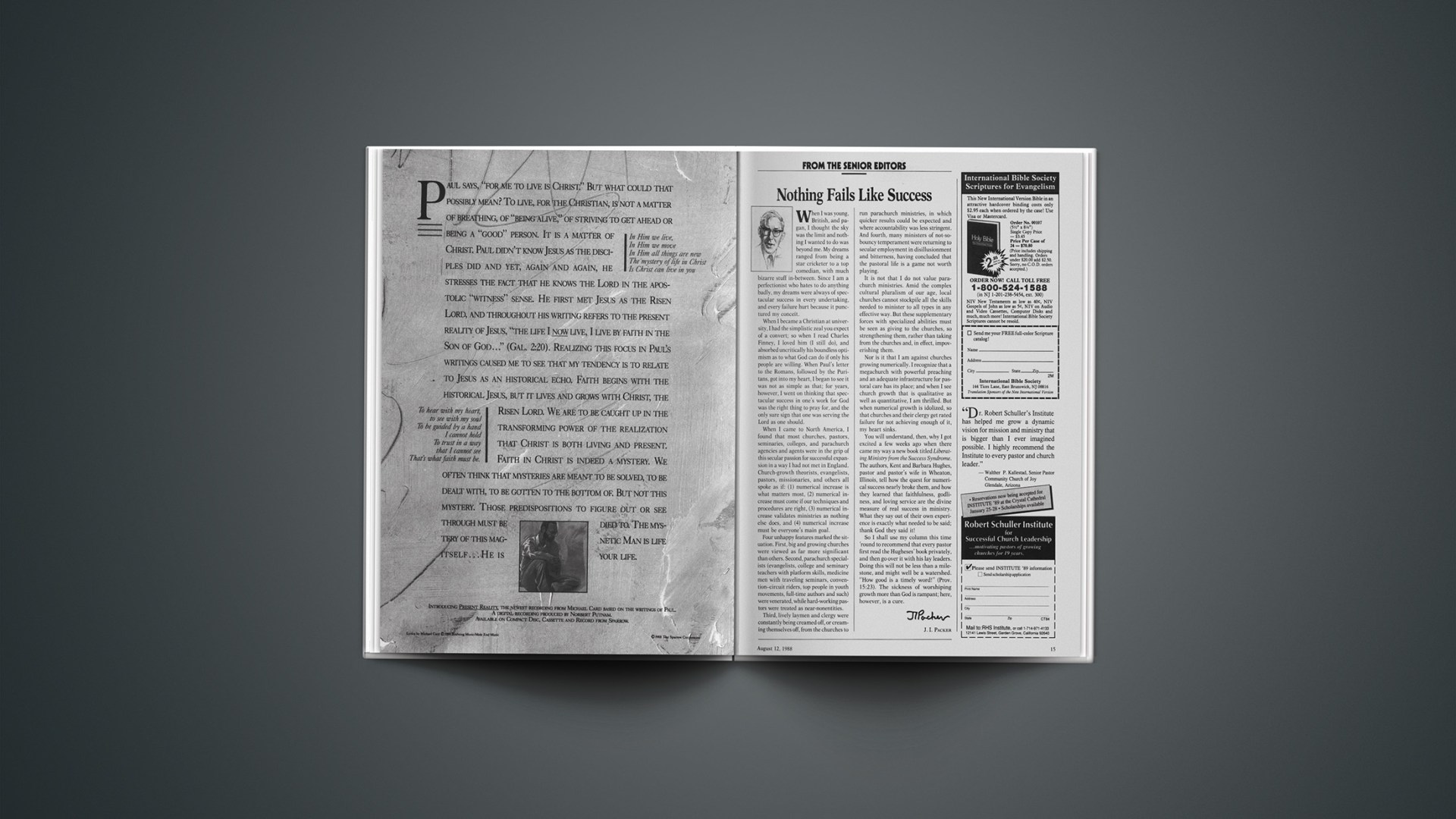When I was young, British, and pagan, I thought the sky was the limit and nothing I wanted to do was beyond me. My dreams ranged from being a star cricketer to a top comedian, with much bizarre stuff in-between. Since I am a perfectionist who hates to do anything badly, my dreams were always of spectacular success in every undertaking, and every failure hurt because it punctured my conceit.
When I became a Christian at university, I had the simplistic zeal you expect of a convert; so when I read Charles Finney, I loved him (I still do), and absorbed uncritically his boundless optimism as to what God can do if only his people are willing. When Paul’s letter to the Romans, followed by the Puritans, got into my heart, I began to see it was not as simple as that; for years, however, I went on thinking that spectacular success in one’s work for God was the right thing to pray for, and the only sure sign that one was serving the Lord as one should.
When I came to North America, I found that most churches, pastors, seminaries, colleges, and parachurch agencies and agents were in the grip of this secular passion for successful expansion in a way I had not met in England. Church-growth theorists, evangelists, pastors, missionaries, and others all spoke as if: (1) numerical increase is what matters most, (2) numerical increase must come if our techniques and procedures are right, (3) numerical increase validates ministries as nothing else does, and (4) numerical increase must be everyone’s main goal.
Four unhappy features marked the situation. First, big and growing churches were viewed as far more significant than others. Second, parachurch specialists (evangelists, college and seminary teachers with platform skills, medicine men with traveling seminars, convention-circuit riders, top people in youth movements, full-time authors and such) were venerated, while hard-working pastors were treated as near-nonentities.
Third, lively laymen and clergy were constantly being creamed off, or creaming themselves off, from the churches to run parachurch ministries, in which quicker results could be expected and where accountability was less stringent. And fourth, many ministers of not-so-bouncy temperament were returning to secular employment in disillusionment and bitterness, having concluded that the pastoral life is a game not worth playing.
It is not that I do not value parachurch ministries. Amid the complex cultural pluralism of our age, local churches cannot stockpile all the skills needed to minister to all types in any effective way. But these supplementary forces with specialized abilities must be seen as giving to the churches, so strengthening them, rather than taking from the churches and, in effect, impoverishing them.
Nor is it that I am against churches growing numerically. I recognize that a megachurch with powerful preaching and an adequate infrastructure for pastoral care has its place; and when I see church growth that is qualitative as well as quantitative, I am thrilled. But when numerical growth is idolized, so that churches and their clergy get rated failure for not achieving enough of it, my heart sinks.
You will understand, then, why I got excited a few weeks ago when there came my way a new book titled Liberating Ministry from the Success Syndrome. The authors, Kent and Barbara Hughes, pastor and pastor’s wife in Wheaton, Illinois, tell how the quest for numerical success nearly broke them, and how they learned that faithfulness, godliness, and loving service are the divine measure of real success in ministry. What they say out of their own experience is exactly what needed to be said; thank God they said it!
So I shall use my column this time round to recommend that every pastor first read the Hugheses’ book privately, and then go over it with his lay leaders. Doing this will not be less than a milestone, and might well be a watershed. “How good is a timely word!” (Prov. 15:23). The sickness of worshiping growth more than God is rampant; here, however, is a cure.
J. I. PACKER










